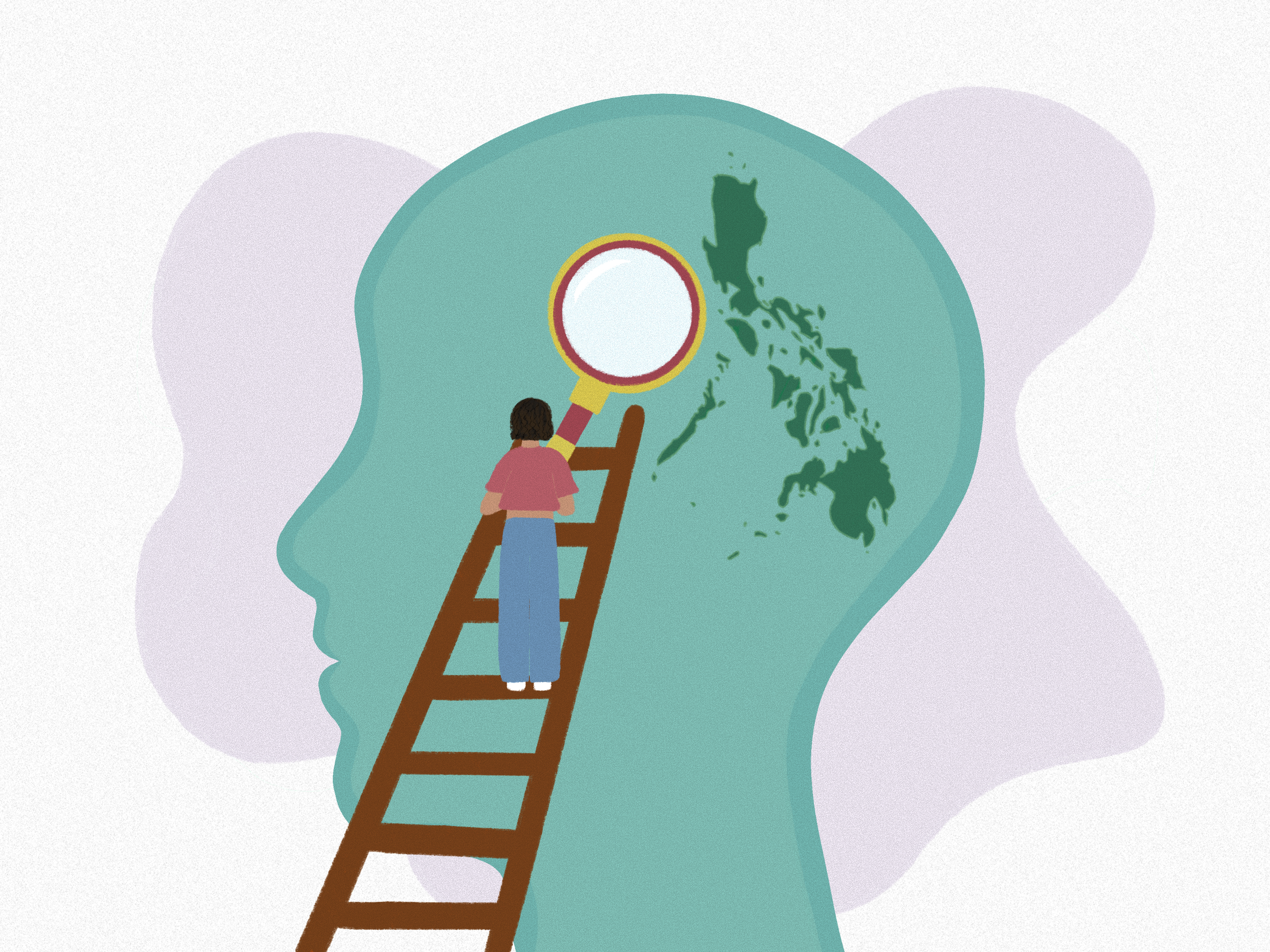The generations before us made #FAFO possible
By Adrienne Hidalgo Esguerra March 17, 2023
Illustration: goodwaves.studio
Doctor, lawyer, nurse, engineer.
For many of us growing up, professions like these represented the ultimate measure of success — or so we were told. By obtaining this career, you were deemed successful. It also served as confirmation that your family did a good job raising you.
It is a linear journey. Get from Point A to Point B.
What did you do, and who did you have to be in order to be considered successful?
Oftentimes, one must internalize a set of characteristics to accomplish the tasks necessary to “arrive” at success or even travel on an approved “right track.”
Characteristics like compliance or the ability to produce tangible outcomes in a quick, reproducible, and profitable way. Characteristics rewarded for upholding and perpetuating capitalism, white supremacy, and patriarchy.
“Hold up! Are you talking about me?!” I don’t know, are we?
The COVID-19 pandemic forced people to reevaluate their jobs, careers, and lives. The desire to quit your job to do the things you love resulted in a spike of passion projects turned side hustles turned businesses. Articulating the distinction that your job is a means to earn money to pay the bills versus your work as a physical or mental effort meant to achieve results led to a collective questioning of what success may look like in the “new normal.”
It was during this time the Japanese concept of ikigai became more popular. To English speakers, ikigai loosely translates to your ‘reason for being’ or ‘life’s worth.’
Tim Tamashiro, author of “How to Ikigai: Lessons for Finding Happiness and Living Your Life’s Purpose,” describes ikigai in his TED Talk as a treasure map that has four directions: do what you love, do what you’re good at, do what the world needs and do what you can be rewarded for. When you follow these four directions, you find your ikigai.
A cursory search on Google Images will yield a sexy Venn diagram of these aspects with ikigai in the center. Following #ikigai, you’ll find reels of people pursuing their passions and creative endeavors. “10 Rules of Ikigai” will likely pop up in your search with helpful tips to live a fulfilling life that you’ll want to like, save or share.
The Western idea of ikigai is often equated with one’s ‘professional sweet spot’ or a more meaningful way to make money – how American it is to center money on one’s life purpose. Rather, ikigai is holistic, all-encompassing and cannot be reduced to a framework or simple translation.
At the intersection of an increasing awareness of the cultural appropriation of indigenous ways of being, like ikigai, and with the journey of re-membering my indigeneity through the lens of decolonization, I began to wonder:
Is there an equivalent concept in the Philippines that existed before colonization? Historians, scholars, and students of life, please reach out and share your findings.
With the colonial legacies left behind in the Philippines, many Filipinx struggle to understand their identity and sense of self.
As an ethnic studies student at San Francisco State University, I learned about Filipino psychology.
Psychology taught in Philippine schools was predominantly Western in theory and methodology (Pe-Pua and Protacio-Marcelino). In an effort to name the colonial influence of Spain and the United States and build an understanding without foreign influence, Virgilio Enriquez created Sikolohiyang Pilipino.
Filipino psychology examines “traditional” Western psychology from a Filipino perspective (Nadal). Among the outcomes are a body of knowledge including indigenous concepts, the development of indigenous research methods and indigenous personality testing, new directions in teaching psychology, and active participation in organizations among Filipino psychologists and social scientists, both in the Philippines and overseas (Pe-Pua and Protacio-Marcelino).
Learning about Filipino psychology made me feel seen. At the same time, I also felt deep sadness, realizing how disconnected we as a people are from our indigenous ways of being, our language, and our land. While I still grieve the loss of cultural memory and its consequences, I am recommitted to the nonlinear journey of decolonization to heal myself and the culture.
Let’s take a moment to examine how the generations before us valued a linear path to success. Achieving the circumstances to live long and well enough to pass on your legacy meant success. The well-traveled path or path of least resistance often allowed for those outcomes. But we can redefine what success means and looks like. Sharing your narrative, articulating your circumstances, bearing witness to others’ transformations, allowing time to rest, and exploring what delights you are all methods to discover what makes you want to get out of bed every day.
I offer this on your journey to redefine what success means to you and our next generation. Whether it is a linear path or you forge your own way, we are redefining success differently than past generations. Because of them, we are in a position to #FAFO. And that is how we got to be here: reading an article written by a Filipinx about being Filipinx in a Filipinx newspaper rooted in solidarity. So let’s redefine success and go #FAFO.

